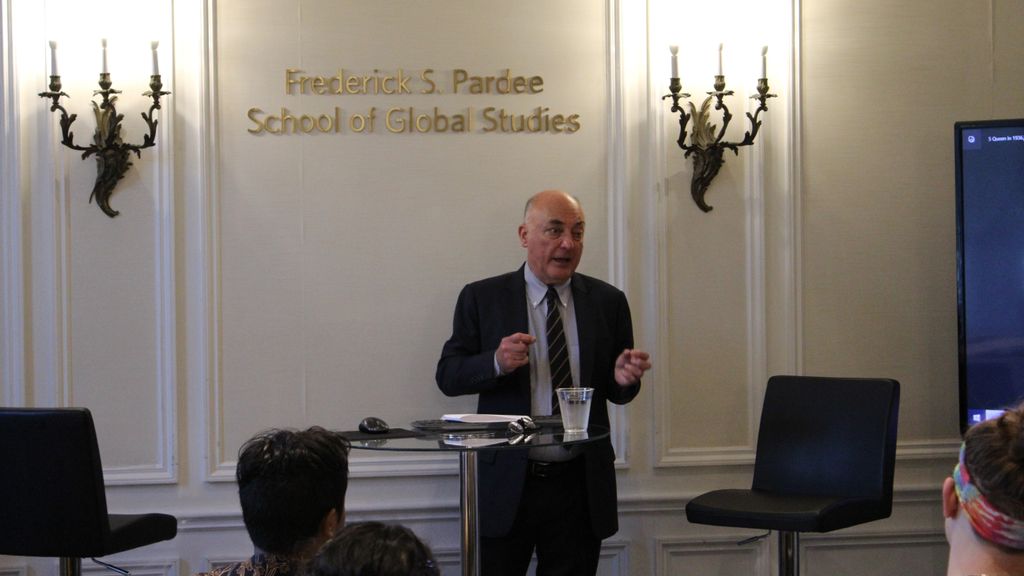CURA Hosts Lecture on Veiling and Violence in Recent Iranian History

On November 7, 2022, the Institute on Culture, Religion and World Affairs (CURA), an affiliated institute of Boston University’s Frederick S. Pardee School of Global Studies, hosted a lecture titled “Veiling and Violence in Recent Iranian History” led by Pardee School Professor Emeritus of International Relations and History Houchang Chehabi.
What constitutes proper attire for women – and men – has been a major issue in Iran’s culture wars for more than a century, and disagreements over it have occasionally generated physical violence, most consistently since the revolution of 1979. The lecture provided an overview of the issue of veiling in Iranian society from the mid-nineteenth century to the present.
 In his remarks, Chehabi addressed why Iran’s regime is so adamant about enforcing veiling, how women have protested the policy, and the growing disapproval of compulsory veiling. Affluence and the act of unveiling have always been intrinsically linked in Iran, according to Chehabi; educated and elite women were among the first to begin unveiling in public as they could do so with less scrutiny or fear of violence as compared to others. Despite wider societal change and the expansion of women’s fashion, it was clear that the country’s ruling class did not approve and those who went unveiled, wore makeup, or made a “fashion statement” were the targets of violence and arrest in more conservative towns and neighborhoods.
In his remarks, Chehabi addressed why Iran’s regime is so adamant about enforcing veiling, how women have protested the policy, and the growing disapproval of compulsory veiling. Affluence and the act of unveiling have always been intrinsically linked in Iran, according to Chehabi; educated and elite women were among the first to begin unveiling in public as they could do so with less scrutiny or fear of violence as compared to others. Despite wider societal change and the expansion of women’s fashion, it was clear that the country’s ruling class did not approve and those who went unveiled, wore makeup, or made a “fashion statement” were the targets of violence and arrest in more conservative towns and neighborhoods.
Today, more women than ever are there resisting the policy and strong public disapproval of forced veiling is rampant as seen in the ongoing protest movement in Iran, which was sparked when Mahsa Amini, a woman who had been arrested for violating hijab regulations, died in detention. Chehabi noted that a government spokesman has said that the number of women veiling is dropping 5%, which the public is more than happy with; a 2020 government poll found that 72% of Iranians were against compulsory veiling. There has been increased solidarity among men and women over this issue in recent years leaving some to wonder why it is still so adamantly defended by the government. In closing, Chehabi noted that Iran has more pressing, but “hidden,” issues that conflict with the Muslim state – drinking, financial corruption, etc. He postulated that if these were to come to the surface, it could serve as a case that the government has failed to make the population more pious and perhaps lead to wider societal change.
Founded in 1985, CURA was the first interdisciplinary research center in the United States focused on religion and global affairs. CURA seeks to build a community of scholars from BU and beyond with a shared interest in religion and world affairs. CURA joined the Pardee School of Global Affairs in 2015 and continues to sponsor collaborative research projects, public lectures, and gatherings for faculty, graduate students, and others, and to support the Pardee School’s curriculum in religion and global affairs. Learn more about CURA on the institute’s website.